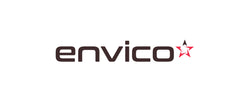1. Understanding the Role of a Compliance Officer
A Compliance Officer ensures that an organization adheres to legal regulations, internal policies, and ethical standards. Their responsibilities typically include:
- Monitoring and auditing: Regularly reviewing processes to ensure compliance with laws and regulations.
- Policy development: Creating and implementing internal policies and procedures.
- Training: Educating employees about compliance requirements and best practices.
- Reporting: Documenting and reporting any compliance issues or breaches.
- Risk management: Identifying and mitigating potential compliance risks.
2. Educational Requirements
While there is no single educational path to becoming a Compliance Officer, certain qualifications are highly beneficial:
- Bachelor’s Degree: Most Compliance Officers hold a bachelor’s degree in fields such as Business Administration, Law, Finance, or a related field.
- Master’s Degree (Optional): Advanced degrees like an MBA or a Master's in Compliance or Risk Management can enhance your credentials and provide a competitive edge.
3. Gaining Relevant Experience
Experience plays a crucial role in becoming a successful Compliance Officer. Consider the following paths:
- Entry-Level Positions: Start in roles such as Compliance Assistant or Risk Analyst to gain relevant experience.
- Industry Knowledge: Familiarise yourself with the specific regulations and compliance requirements of the industry you wish to work in (e.g., finance, healthcare, manufacturing).
4. Obtaining Professional Certifications
Certifications can validate your expertise and commitment to the field. Consider pursuing:
- Certified Compliance & Ethics Professional (CCEP): Offered by the Compliance Certification Board (CCB), this certification is recognised globally.
- Certified Risk and Compliance Management Professional (CRCMP): Offered by the International Association of Risk and Compliance Professionals (IARCP).
- Certified Fraud Examiner (CFE): Provided by the Association of Certified Fraud Examiners (ACFE).
5. Developing Key Skills
Success as a Compliance Officer relies on a range of skills:
- Attention to Detail: Ability to scrutinise policies and procedures meticulously.
- Analytical Skills: Capability to assess risks and identify areas for improvement.
- Communication Skills: Proficiency in conveying complex compliance issues to stakeholders clearly.
- Problem-Solving Abilities: Skill in addressing compliance issues and finding effective solutions.
6. Networking and Professional Development
Building a network within the compliance community can be valuable. Engage in:
- Industry Conferences: Attend events to stay updated on regulatory changes and best practices.
- Professional Associations: Join organisations like the Society of Corporate Compliance and Ethics (SCCE) or the Association of Certified Compliance Professionals (ACCP).
7. Applying for Compliance Officer Positions
When applying for positions:
- Tailor Your Resume: Highlight relevant experience, skills, and certifications.
- Prepare for Interviews: Be ready to discuss your understanding of compliance issues and demonstrate how you’ve handled them in the past.
8. Continuing Education and Career Advancement
The field of compliance is dynamic, with regulations frequently evolving. Stay current through:
- Ongoing Training: Participate in continuing education courses and workshops.
- Advanced Certifications: Pursue additional certifications or specialisations to advance your career.
Becoming a Compliance Officer requires a blend of education, experience, skills, and continuous learning. By following this guide and staying committed to professional growth, you can position yourself for a successful career in compliance, helping organisations navigate the complexities of regulatory landscapes and maintain high ethical standards.
